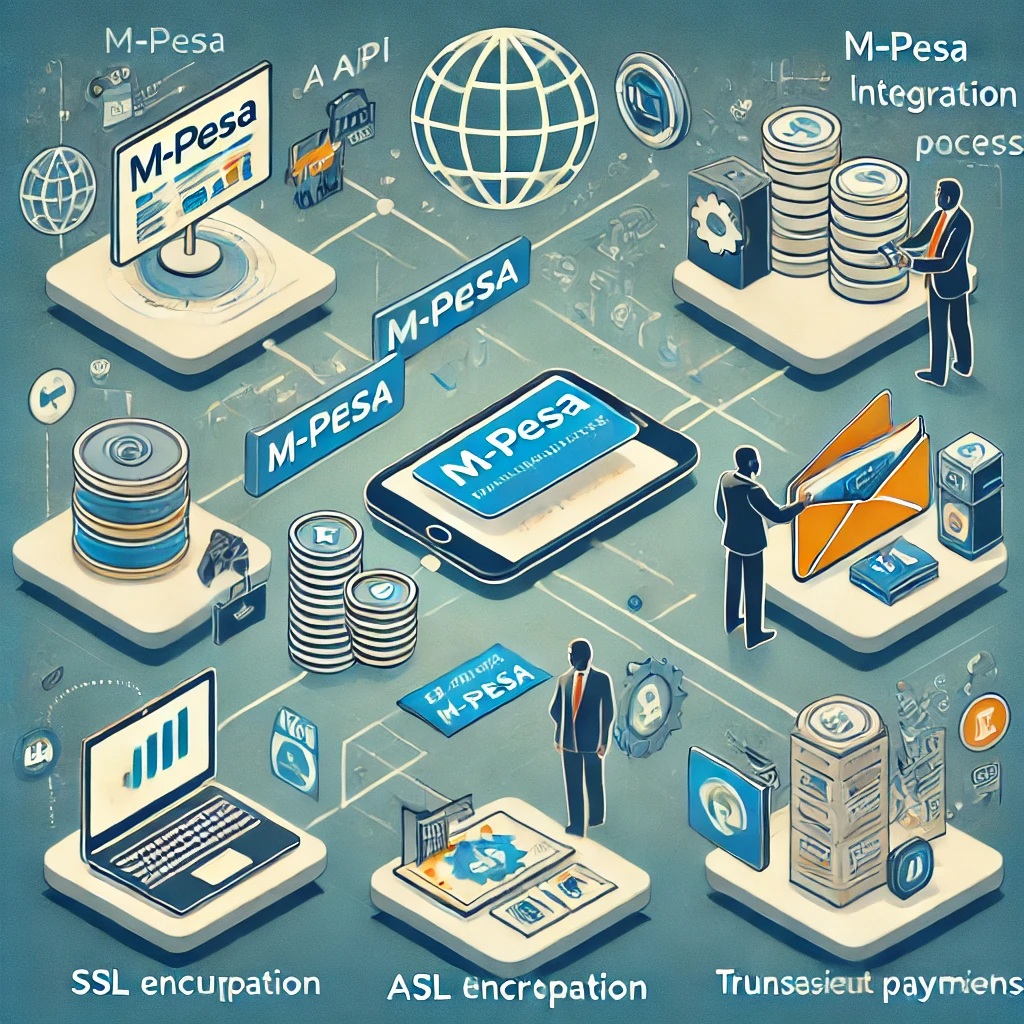No products in the cart.

Emerging Technologies in Kenya
Kenya, often regarded as the Silicon Savannah, has consistently been at the forefront of technological innovation in Africa. The country’s tech landscape is evolving rapidly, driven by the dynamic interplay of a youthful population, increasing internet penetration, and a burgeoning startup ecosystem. This blog explores the emerging technologies in Kenya that are shaping the future and driving economic growth, highlighting key sectors where these innovations are making a significant impact.
1. Fintech: Revolutionizing Financial Services
Fintech has been a game-changer in Kenya, with mobile money services like M-Pesa leading the way. However, the landscape is evolving beyond mobile payments, with new technologies such as blockchain, artificial intelligence (AI), and machine learning (ML) driving the next wave of innovation.
- Blockchain and Cryptocurrencies: Blockchain technology is gaining traction in Kenya, particularly in areas like cross-border remittances, supply chain management, and land registry. Companies like BitPesa are leveraging blockchain to facilitate fast, low-cost international money transfers, while projects like Land LayBy are using blockchain to create tamper-proof digital land records.
- AI and ML in Finance: Kenyan fintech startups are increasingly incorporating AI and ML to enhance customer experiences and drive operational efficiency. For instance, AI-powered chatbots are being used to provide real-time customer support, while machine learning algorithms are helping to identify fraud and predict loan defaults.
- Digital Lending Platforms: The proliferation of mobile lending platforms has provided millions of Kenyans with access to credit. These platforms, powered by big data analytics and machine learning, assess creditworthiness based on non-traditional data sources such as mobile phone usage and social media activity.
2. Agritech: Enhancing Agricultural Productivity
Agriculture remains the backbone of Kenya’s economy, contributing to about 33% of the GDP and employing over 40% of the total population. Emerging technologies are playing a crucial role in transforming this sector, making it more efficient, sustainable, and profitable.
- Precision Agriculture: The adoption of precision agriculture technologies, such as drones, IoT sensors, and satellite imagery, is enabling farmers to monitor crop health, optimize irrigation, and apply fertilizers more efficiently. Companies like Twiga Foods and Apollo Agriculture are at the forefront of this revolution, providing smallholder farmers with the tools and resources to increase productivity and reduce waste.
- Mobile Applications for Farmers: Mobile apps are becoming indispensable tools for Kenyan farmers. Apps like DigiFarm and iCow offer farmers access to information on best practices, weather forecasts, and market prices, helping them make informed decisions and improve yields.
- Blockchain in Agriculture: Blockchain technology is also making inroads into the agricultural sector, particularly in enhancing transparency and traceability in the supply chain. For example, FoodTrace uses blockchain to track the journey of agricultural products from farm to table, ensuring food safety and boosting consumer confidence.
3. Healthtech: Transforming Healthcare Delivery
The healthcare sector in Kenya is undergoing a digital transformation, with emerging technologies playing a pivotal role in improving access to quality healthcare services.
- Telemedicine: Telemedicine platforms have gained popularity, especially in the wake of the COVID-19 pandemic. Companies like TIBU Health and MyDawa are providing online consultations, medication delivery, and home-based care services, making healthcare more accessible to Kenyans, particularly in remote areas.
- AI in Healthcare: AI is being used to enhance diagnostic accuracy and treatment outcomes. AI-powered tools like Ada Health are enabling healthcare providers to diagnose diseases more accurately and efficiently, while startups like HealthX Africa are using AI to predict disease outbreaks and manage public health emergencies.
- Wearable Health Devices: Wearable devices that monitor vital signs and track fitness levels are becoming increasingly popular among Kenyans. These devices, often linked to mobile apps, provide users with real-time health data, enabling them to take proactive measures to maintain their health.
4. Edtech: Revolutionizing Education
Education in Kenya is being transformed by technology, with emerging edtech solutions making learning more accessible, personalized, and engaging.
- E-Learning Platforms: The rise of e-learning platforms like Eneza Education and Longhorn eLearning has made quality education accessible to students across Kenya. These platforms offer interactive lessons, quizzes, and assessments, allowing students to learn at their own pace and track their progress.
- AI and Adaptive Learning: AI-powered adaptive learning platforms are gaining traction in Kenya. These platforms personalize learning experiences by analyzing students’ strengths and weaknesses and providing tailored content and exercises. This approach is helping to bridge learning gaps and improve student outcomes.
- Augmented Reality (AR) and Virtual Reality (VR): AR and VR technologies are being used to create immersive learning experiences. For example, students can take virtual field trips to historical sites or conduct science experiments in a virtual lab, making learning more engaging and interactive.
5. Renewable Energy: Powering Sustainable Development
Kenya has made significant strides in the renewable energy sector, with emerging technologies playing a key role in diversifying the energy mix and promoting sustainability.
- Solar Energy: Solar power is becoming increasingly important in Kenya’s energy landscape. Innovations in solar technology, such as solar microgrids and pay-as-you-go solar home systems, are providing off-grid communities with access to affordable and reliable electricity. Companies like M-Kopa and d.light are leading the charge in this space, bringing clean energy solutions to millions of households.
- Wind Energy: Wind power is another area where Kenya is making notable progress. The Lake Turkana Wind Power project, the largest in Africa, is a testament to the country’s commitment to harnessing wind energy. Emerging technologies are improving the efficiency of wind turbines and reducing the cost of wind power generation.
- Energy Storage Solutions: The integration of energy storage solutions, such as batteries and pumped hydro storage, is critical for the stability and reliability of renewable energy systems. Companies like PowerGen are exploring innovative energy storage solutions to support the growth of renewable energy in Kenya.
6. Smart Cities: Shaping the Future of Urbanization
As Kenya continues to urbanize rapidly, the concept of smart cities is gaining momentum. Emerging technologies are being deployed to create urban environments that are more sustainable, efficient, and livable.
- Smart Infrastructure: The development of smart infrastructure, such as intelligent traffic management systems, smart street lighting, and automated waste management systems, is enhancing the quality of life in Kenyan cities. These technologies are helping to reduce congestion, improve public safety, and promote environmental sustainability.
- IoT and Big Data: The Internet of Things (IoT) and big data analytics are playing a crucial role in the development of smart cities in Kenya. IoT devices are being used to collect data on various aspects of urban life, such as air quality, energy consumption, and traffic patterns. This data is then analyzed to inform decision-making and optimize city operations.
- Public-Private Partnerships: The successful implementation of smart city projects in Kenya often involves collaboration between the public and private sectors. For example, the Konza Technopolis project, a flagship smart city initiative, is being developed through a public-private partnership, with the aim of creating a hub for technology, innovation, and business.
7. E-Commerce: Redefining Retail and Consumer Behavior
The e-commerce sector in Kenya is experiencing rapid growth, driven by increased internet penetration, mobile phone usage, and a shift in consumer behavior towards online shopping. Emerging technologies are reshaping the e-commerce landscape, making it more efficient, secure, and customer-centric.
- Mobile Commerce (M-Commerce): M-commerce is a significant driver of e-commerce growth in Kenya. With the majority of the population accessing the internet via mobile phones, e-commerce platforms are optimizing their websites and apps for mobile users. Mobile payment solutions like M-Pesa have also facilitated the rise of m-commerce by providing a convenient and secure payment method.
- AI and Personalization: AI is being used to enhance the online shopping experience by providing personalized product recommendations, chatbots for customer support, and targeted marketing campaigns. E-commerce platforms are leveraging AI to analyze customer behavior and preferences, enabling them to offer tailored products and services.
- Logistics and Last-Mile Delivery: The logistics sector is being transformed by emerging technologies such as drones, autonomous vehicles, and IoT. These innovations are helping e-commerce companies overcome the challenges of last-mile delivery, particularly in remote and underserved areas. Companies like Sendy and Glovo are at the forefront of this transformation, offering efficient and reliable delivery services.
8. Artificial Intelligence and Machine Learning: Driving Innovation Across Industries
AI and ML are two of the most transformative technologies in Kenya today, with applications across various industries, including finance, healthcare, agriculture, and manufacturing.
- AI in Manufacturing: The manufacturing sector in Kenya is adopting AI and ML to optimize production processes, reduce costs, and improve product quality. AI-powered predictive maintenance systems are being used to monitor equipment health and prevent breakdowns, while machine learning algorithms are optimizing supply chain operations.
- AI in Customer Service: AI-powered chatbots and virtual assistants are becoming increasingly common in Kenya, providing businesses with a cost-effective way to handle customer inquiries and support. These AI tools are capable of understanding natural language, providing instant responses, and learning from customer interactions to improve over time.
- AI for Social Good: AI is also being used to address social challenges in Kenya. For example, AI-powered tools are being developed to combat wildlife poaching, predict droughts and floods, and monitor air quality in urban areas. These initiatives are helping to promote environmental sustainability and improve the quality of life for Kenyans.
9. Cybersecurity: Protecting the Digital Frontier
As Kenya’s digital landscape continues to expand, cybersecurity has become a critical concern. Emerging technologies are being deployed to protect individuals, businesses, and government institutions from cyber threats.
- AI and Machine Learning in Cybersecurity: AI and ML are playing a vital role in enhancing cybersecurity in Kenya. These technologies are being used to detect and respond to cyber threats in real time, analyze vast amounts of data for signs of malicious activity, and automate security processes. Companies like Serianu and CyberTrace are leveraging AI to provide advanced cybersecurity solutions.
- Blockchain for Data Security: Blockchain technology is also being explored as a means of enhancing data security in Kenya. By creating decentralized and tamper-proof records, blockchain can help protect sensitive information from unauthorized access and manipulation. This technology has potential applications in various sectors, including finance, healthcare, and government.
- Cybersecurity Awareness and Training: In addition to technological solutions, there is a growing emphasis on cybersecurity awareness and training in Kenya. Organizations are investing in training programs to educate employees and the public on best practices for protecting themselves online. Initiatives like AfricaHackOn are also helping to build a community of skilled cybersecurity professionals in the country.
Conclusion on Emerging Technologies in Kenya
Emerging technologies are transforming Kenya’s economy and society, driving innovation, creating new opportunities, and addressing critical challenges. From fintech and agritech to healthtech and AI, these technologies are reshaping industries, improving the quality of life, and positioning Kenya as a leader in the digital age. As the country continues to embrace and invest in these innovations, the future of Kenya looks promising, with technology serving as a catalyst for sustainable development and economic growth. The key to unlocking the full potential of these technologies lies in fostering a supportive ecosystem that encourages innovation, collaboration, and inclusivity, ensuring that all Kenyans can benefit from the digital revolution.




